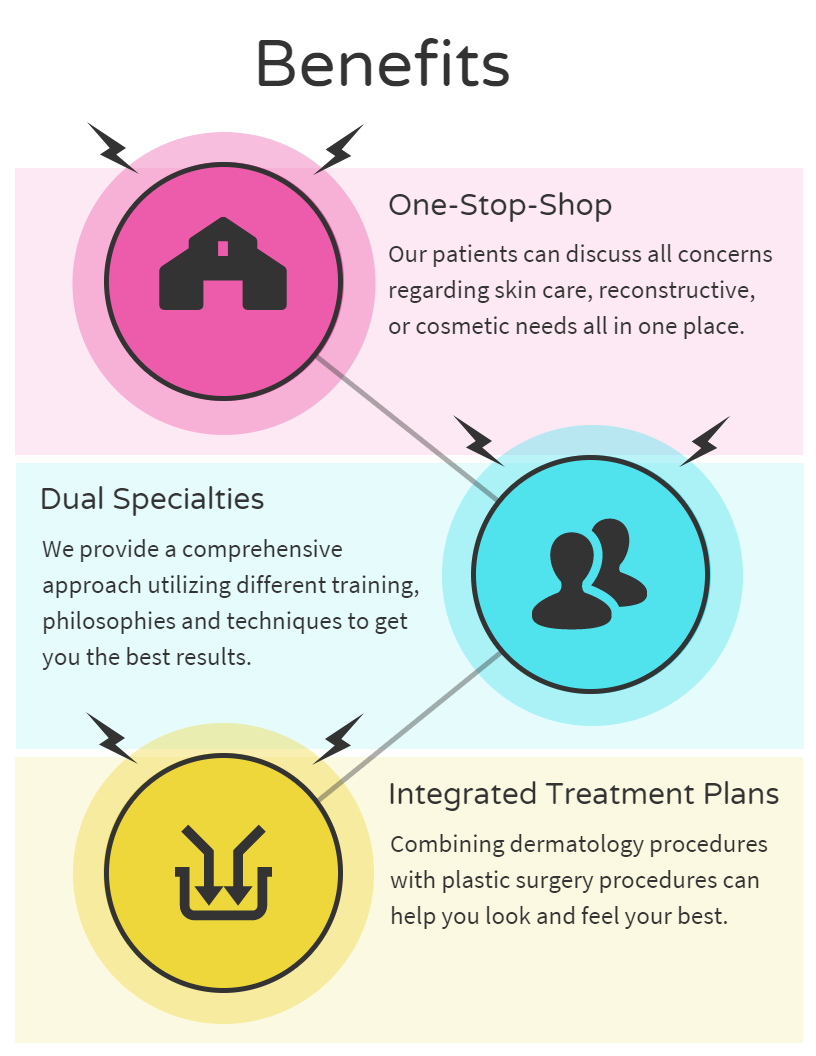Misconceptions And Realities Concerning Acne: Debunking Common Misconceptions
Misconceptions And Realities Concerning Acne: Debunking Common Misconceptions
Blog Article
Material Composed By-Termansen Bojsen
You might believe that enjoying delicious chocolate or oily foods is the source of your acne, however that's simply one of many misconceptions swirling around this typical skin disease. Actually, acne largely originates from stopped up hair roots, not your last dessert. Misunderstandings like these can lead you to adopt ineffective skincare techniques that may also aggravate your circumstance. As you browse the truths behind acne, you'll find insights that could change your technique to skin care and aid you accomplish clearer skin. So, what truly lies below the surface area?
Common Myths Concerning Acne
When it comes to acne, lots of people believe in usual myths that can lead to complication and aggravation. One widespread myth is that eating chocolate or greasy foods creates acne. While diet regimen can affect skin health and wellness, the direct link in between particular foods and acne isn't as clear-cut as lots of assume.
One more typical false impression is that you must scrub your face strongly to clear outbreaks. In truth, aggressive rubbing can irritate your skin and intensify acne.
You might likewise think that acne just influences teenagers, yet grownups can experience it too, typically as a result of hormonal modifications or stress. Some people believe that tanning can clear up acne, but sun direct exposure can actually lead to skin damages and intensify breakouts in the future.
Lastly, numerous believe that making use of extreme items will remove acne promptly. Nevertheless, these products can remove your skin of its natural oils, resulting in raised irritation and more breakouts.
Scientific Information Behind Acne
Understanding the clinical realities behind acne can equip you to tackle this typical skin disease more effectively.
rf microneedling near me takes place when hair roots end up being obstructed with oil, dead skin cells, and germs. This procedure usually begins with an overflow of sebum, the oil your skin normally generates. Hormone changes, particularly during the age of puberty or menstrual cycle, can activate this excess oil.
Bacteria known as Propionibacterium acnes grow in these clogged pores, causing inflammation. When your body immune system responds, it can trigger inflammation and swelling, causing those bothersome pimples or cysts.
Genetics likewise contribute; if your parents had acne, you might be extra vulnerable to it.
Diet regimen and stress levels can influence acne too, yet research is still evolving in these areas. While indulging in greasy foods will not directly cause outbreaks, a balanced diet regimen can sustain your skin wellness.
Also, taking care of tension can minimize hormone changes that might aggravate acne.
Tips for Handling Acne
Handling acne efficiently needs a combination of everyday skin care behaviors and way of living modifications. Start by establishing a regular skin care routine. Clean your face twice a day with a mild, non-comedogenic cleanser to eliminate dust and excess oil. Prevent scrubbing also hard, as this can irritate your skin and get worse acne.
Next off, integrate products having salicylic acid or benzoyl peroxide to aid prevent outbreaks. Constantly follow up with a light-weight, oil-free cream to maintain your skin hydrated. Don't forget sunscreen; opt for non-comedogenic choices to safeguard your skin from UV damages without clogging pores.
Beyond skin care, take note of your diet plan. Limit sweet and oily foods, and focus on fruits, veggies, and entire grains. Staying moisturized is https://cold-laser-therapy-near-m75420.goabroadblog.com/31443288/the-scientific-research-behind-acne-treatment-how-ingredients-work-to-clear-skin , so beverage lots of water throughout the day.
In addition, manage tension with tasks like yoga exercise, reflection, or workout, as anxiety can activate breakouts.
Last but not least, stay clear of choosing or standing out pimples. This can lead to scarring and more inflammation. If your acne continues, get in touch with a dermatologist for tailored therapy choices.
Final thought
Finally, it's necessary to separate truth from fiction when it pertains to acne. By exposing usual misconceptions, you can better recognize your skin and make educated choices for your skin care routine. So, why continue to rely on outdated concepts when the truth can encourage you? Embrace much healthier routines, concentrate on gentle cleansing, and remember that taking care of acne is a journey. With the appropriate expertise, you're one action better to more clear, healthier skin.
